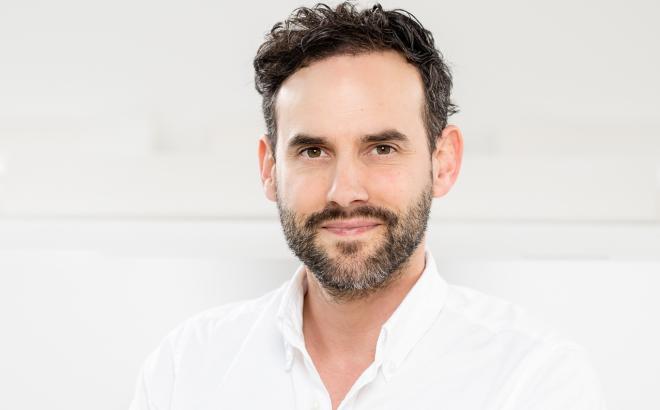Heike Heidemeier, Occupational and Organisational Psychologist
Surveying the Self
Since September 2022, Univ.-Prof. Dr Heike Heidemeier has been the head of the Division of Work, Organizational and Economic Psychology at the Department of Psychology and Psychodynamics at the Karl Landsteiner University of Health Sciences. In her researcher’s portrait, she talks about the fields she focuses on and new perspectives in teaching, research and methodology.
Looking back on the past decades, ideas of how to best lead and motivate people in their work context have changed significantly. These changes were not only caused by modified work requirements, higher levels of education and flatter hierarchies. Theoretical perceptions that work satisfaction is created by reward and gratification or the absence of derogating factors such as unfavourable occupational conditions are plausible, but are hardly supported by empirical studies. One answer in the present research in occupational psychology is to put intrinsic mental processes of self-regulation to the foreground, that is those mental processes which people use to set themselves and pursue aims and with which they react to feedback.
Heike Heidemeier’s research work contributes to this field of research. She investigates for instance how people assess their own capabilities and traits and the consequences these assessments have for their performance and wellbeing. As occupational and organisational psychologist, the researcher also integrates characteristics of the work context, such as rivalry in teams, the level of autonomy or gender composition of working groups. From the beginning of her scientific career, Heike Heidemeier has combined concepts of fundamental research with applied research. For practical life and teaching, this research work provides knowledge of how to shape organisations as well as contributions to the fundamental principles of coaching, consultation and leadership.
Measuring competence and lifelong learning
After her Ph.D. at the University of Erlangen-Nuremberg, the researcher started her career as a member of the “Programme for International Student Assessment” (OECD PISA) where she dealt with the measurement of cognitive competence in an international and national comparison. Her interest in teaching and learning processes brought her to the Jacobs Center for Lifelong Learning and Institutional Development at the Jacobs University Bremen – an interdisciplinary centre for studies on lifelong learning and successful ageing – where she worked as research fellow and lecturer. Heidemeier focused on age correlating differences in motivation and the question about which resources of the individual and their work context can sustain and promote favourable motivational orientation. From the beginning of her career, combining socio-scientific interest with scientific and mathematical knowledge to generate innovative findings was important to the expert which she has tried to accomplish since then. Another step in her career was the Department of Organisational and Personal Psychology of the North Rhine-Westphalia Technical University of Aachen, where she worked as academic adviser in teaching and research, before she was appointed professor of occupational and organisational psychology at the University of Kassel and the University of Göttingen.
Job profiles of occupational, organisational and personal psychology
Heike Heidemeier finds the interdisciplinarity and the focus on health sciences at the private university particularly interesting. “I can integrate very well my research interest in the subjects of work and health, wellbeing and life satisfaction for further development.” She wants to show students the multi-faceted job options of the subject which offers positive career opportunities on an academic level. This includes job profiles in the area of work design and the prevention of threats to mental health as well as consultation of management and senior staff. Other fields of profession are contents and methods of aptitude assessment and psychometry. “Experts who can, for example, test and assess the aptitude and fitting of applicants are in demand. Interesting word fields wait for appropriately qualified psychologists.” Students of this subject who want to work as therapist or coach also learn key knowledge about the generation and prevention of burden and stress, career decisions and courses as well as competence acquisition and emotional experience.
Subjects of the future: Ethical conduct, diversity & new work forms
As applied social science, the field of occupational and organisational psychology permanently deals with newly emerging challenges, such as digitisation, individualisation, ageing workforce and new forms of employment. Stirred by the Covid-19 crises, the professor wants to make her contribution with current and future research to questions on the psychological coping with uncertainty in organisations. She does also research in another relevant topic, namely the role our personality plays in problematic and unethical conduct in organisations. “Companies have experienced that even single individuals can do a lot of damage.”
Link to the KL research information system KRIS





